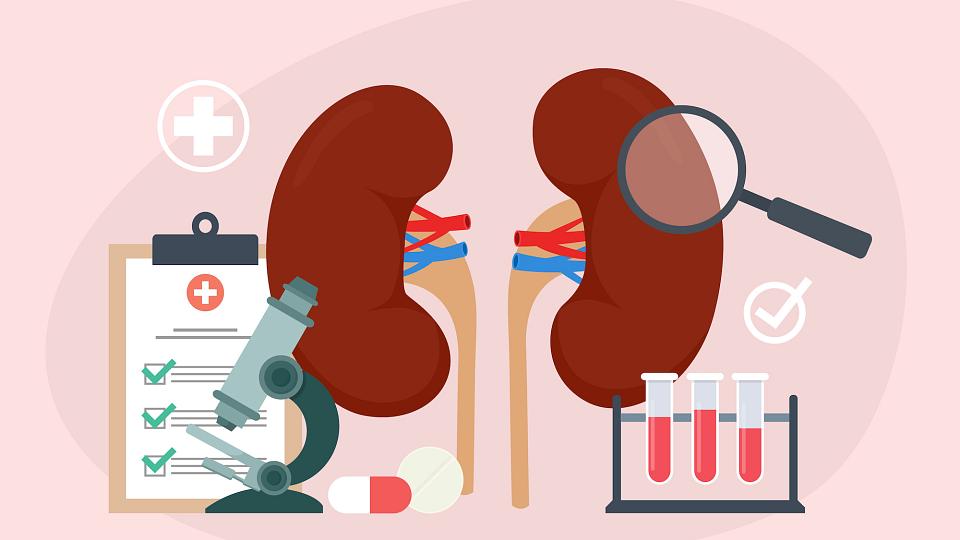Breadcrumb

Daltyn Veater has been through a lot in his 20 years of life.
When he was six months old, Daltyn was diagnosed with polycystic kidney disease (PKD), a genetic condition that causes damaging cysts to grow on the kidneys. By the time Daltyn was diagnosed with PKD, the damage to his kidneys was extensive. One kidney had lost all function, while the other was only functioning at 20% capacity.
Daltyn started dialysis when he was just 18 months old and had his first kidney transplant when he was 2 years old.
“That kidney was so good, it did great for a long time,” said Monica Veater, Daltyn’s mom. “When he turned 15, we started noticing some higher creatinine levels in his lab results. The doctors told us that this indicated his kidney was losing function, and they didn’t expect it to last much longer.”
Three years later, when Daltyn was a senior in high school, he was back on dialysis. Daltyn and his family live in Panguitch, Utah. The closest dialysis clinic is in Cedar City—an hour drive one way.
“We would leave at 4:30am to get to Cedar City, run dialysis until 10:30am, and then come home,” Monica said. “We did that three days a week for a year and a half.”
To ease the travel burden, Monica and Daltyn temporarily relocated to St. George, Utah, for a six-week dialysis training. Once the training ended, Monica ran Daltyn’s dialysis in their home. They started in-home dialysis in October, but in March, Daltyn began to have extremely low blood pressure during the last hour of his dialysis.
“We were looking really hard for a kidney for Daltyn at this point,” Monica said. “We tested everyone on both my side of the family and my husband’s side of the family. There were no matches.”
Monica and her husband knew finding a suitable donor for Daltyn was going to continue to be problematic.
“When a patient has a second kidney transplant, it’s always harder to find a matching donor,” said Miklos Z. Molnar, MD, PhD. “The body starts producing antibodies that can reduce the chances of finding a donor in the future. It’s not impossible, but it can be very difficult.”
Molnar is a professor in the Department of Internal Medicine, Division of Nephrology and Hypertension at the Spencer Fox Eccles School of Medicine at the University of Utah. He is also the medical director of the Kidney and Pancreas Transplantation Program and Living Donor Transplantation Program at University of Utah Hospital.
“In an ideal situation, the patient matches with a living donor,” Molnar said. “But that doesn’t always happen.”
Luckily for Daltyn and others who may be in this same position, there is a way to expand the pool of possible donors through the paired kidney exchange program.
University of Utah Health is part of the National Kidney Registry and the Alliance for Paired Kidney Donation. Being involved in these national programs expands the donation pool so that each recipient finds the most compatible match possible through two scenarios:
-
Classic paired donations—Matching two donor/recipient pairs who are incompatible by “trading” donors.
-
Donor chains—Cross-matching more than two donor/recipient pairs to find the most compatible match possible.
Several donor/recipient pairs may swap recipients so that each recipient receives a compatible kidney.
“My sister-in-law wanted to donate her kidney to Daltyn,” Monica said. “She wasn’t a match for him, but she was totally dedicated to being a part of the paired kidney exchange program. She made Daltyn’s transplant possible.”
To find a matching donor for Daltyn, a national paired kidney exchange program was the only option. With the help of the University of Utah Health Transplant Center, Daltyn matched with a living donor in Boston, Massachusetts. He had his transplant surgery on April 12, 2023, his 20th birthday.
Michael Zimmerman, MD, FACS, performed the transplant surgery. Zimmerman is a professor in the Department of Surgery, Division of Transplant & Advanced Hepatobiliary Surgery at the U’s school of medicine. He is also the surgical director of the adult kidney and pancreas transplant program, the director of the pediatric kidney transplant program at Primary Children’s Hospital, and the director of transplant research.
Zimmerman has been performing transplant surgeries for more than 15 years and is grateful he and his team can help Daltyn and other patients like him.
“With teamwork from the whole group we were able to get through the transplant,” Zimmerman said. “And now, nearly a year after the transplant, he’s doing great.”
Daltyn was one of 65 living donor kidney transplants at U of U Health in 2023.
“The transplant program at U of U Health is the number one program in the state,” Molnar said . “The goal of our program is to break down all the barriers to a transplant, and the resources we have allow us to do that. Even if you are very hard to match, we have solutions.”
Another goal of the program that is important to both Molnar and Zimmerman is to give people a second chance at life.
“Especially for someone like Daltyn who is only 20 years old,” Molnar said.
Since the transplant, Daltyn has been busy. Raising sheep has been a hobby of Daltyn’s since he was 8 years old.
“While he was on dialysis, he could only go check on his sheep every other day or so, and that was hard,” Monica said.
Now, he has much more time to tend to his sheep farm and sell his prize-winning sheep to the 4H community.
If you ever find yourself in Panguitch, Utah, you might just see Daltyn—accompanied by his silver lab, Willow—driving through the streets and meadows tending to his herd.
“It’s a miracle and it’s wonderful,” Monica said. “For a while there, we weren’t sure if we were going to be able to find him a kidney. But here we are nearly a year after a successful transplant, and he’s really doing great.”


